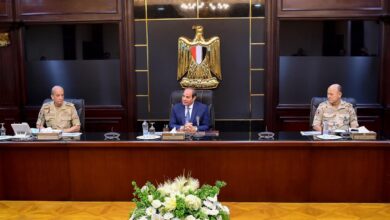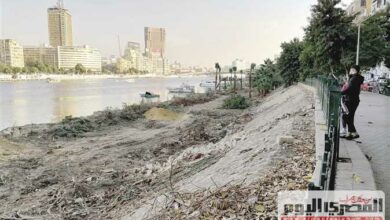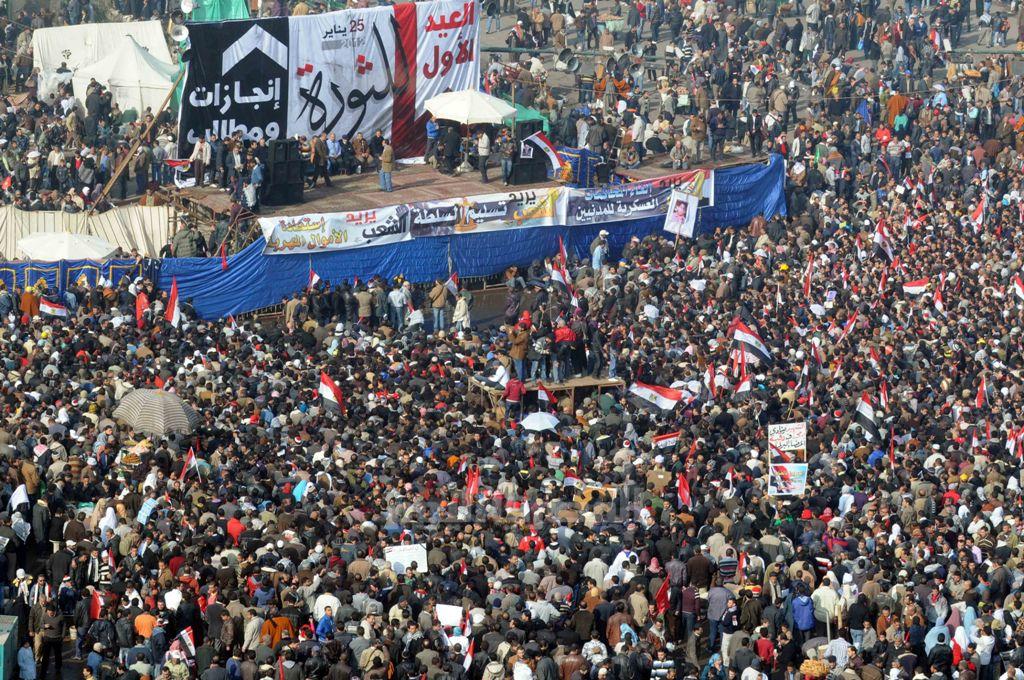In the wake of Sunday’s violence between Coptic demonstrators and military forces in Cairo, political party leaders and activists called for an immediate transfer of power to civilian authorities, the establishment of a civilian presidential council to help manage the transition period, and the dismissal of Prime Minister Essam Sharaf’s government.
In a conference Monday morning, politicians criticized the security vacuum as well as the state media’s deceptive coverage of the violence.
The conference drew public figures from across the political spectrum, from billionaire telecom tycoon-turned liberal politician Naguib Sawiris to Amin Iskandar, secretary general of the Nasserist Karama Party. Former Finance Minister Samir Radwan and Hossam Eissa, a constitutional law expert, were also present.
Twenty-five protesters died, according to the Health Ministry, when a march by Copts was attacked by thugs and military forces. The march started in the largely Christian neighborhood of Shubra to protest against attacks on Christians, most notably a recent attack on a church in the Upper Egyptian city of Aswan, which resulted from the construction of a dome.
The military prosecution began to investigate 25 suspects on Monday.
“We as Egyptians are facing a problem. It’s not a Coptic and Muslim problem. It’s not a military or civilians problem, but it’s a problem in Egypt’s flawed society and inter-relations. This could end up in a civil war,” said Amr Moussa, a potential presidential candidate and former foreign minister under Mubarak.
Moussa stressed the importance of ruling with an iron-fist in order to protect the country from looming chaos.
Meantime, Abdel Gelil Mostafa, leader of the National Association for Change, slammed the Mubarak-like rule of the Supreme Council of Armed Forces (SCAF), describing it as “semi-divine.”
Speakers at the conference issued calls for a civilian council to serve as Egypt’s executive authority, instead of SCAF, echoing demands made by Mohamed ElBaradei and other secular political figures shortly after Mubarak stepped down in February.
“SCAF has to delegate executive power to the government, while the current cabinet has to be replaced with a more powerful one,” said Mostafa.
On the same note, Ayman Nour, presidential hopeful and leader of the liberal New Ghad Party, said the people’s partnership with SCAF was finished after Sunday’s events. He asked for a civilian national council to take over the country.
Female presidential hopeful Bothaina Kamel also blamed last night’s violence on SCAF, demanding that “the military institution must be purged of Mubarak regime figures.”
Mohamed Abul Ghar, president of the Egyptian Social Democratic Party, demanded that the military police be tried for violations against protesters.
Maikel Mounir, US based Coptic activist, accused the military of using more violence against Copts than it did against other protesters. The statement triggered shouts of dissent from the audience, which told him he was fueling sectarian strife.
Politicians harshly criticized state TV’s coverage of the incidents, accusing it of “inciting violence between citizens” and called for the resignation of Minister of Information Osama Haikal.
“The news department at state TV has to stop operating as of today until it’s put on the right track. We won’t keep losing people’s lives as a price for state TV’s incitement,” said Gamila Ismail, TV host and political activist.
The military police stormed the offices of Channel 25 located at Maspero, and asked journalists if they were hiding protesters or if there was anyone throwing stones from the balcony. Soldiers assaulted the channel’s journalists and demanded to see ID cards to check religious identity, and the channel’s live broadcast was stopped.
Politicians demanded the formation of an independent fact-finding committee to investigate the violence and reveal who was responsible.




